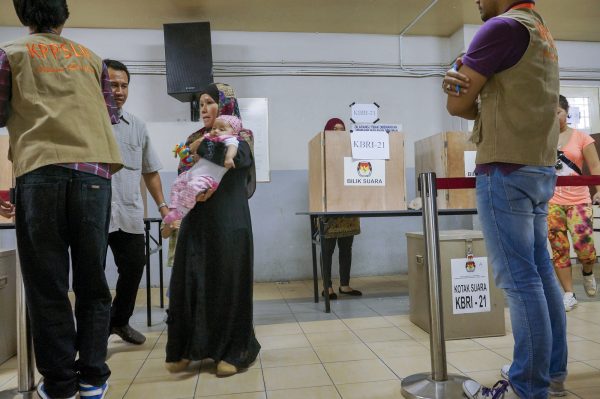Another and Better Way of Promoting Democracy
As Taipei accuses Beijing of trying to take control of the Taiwan Strait in the wake of U.S. House Speaker Nancy Pelosi’s controversial visit and the Biden administration continues along with its Western allies in their proxy war against Russia in Ukraine, the global status quo has seemingly and suddenly been upended.
There is little doubt that China and Russia have entered into a new and potentially dangerous period of their relations with the United States. As bilateral ties between Washington, Beijing, and Moscow reach lows not seen since the height of the Cold War, tensions have reached a point where there is a palpable risk of what some have called a “new cold war” turning inadvertently into direct confrontation.
For now, Washington has primarily responded to these multiple challenges by strengthening its military alliances. The Biden administration is working with its long-standing allies and partners in the Indo-Pacific region, including Japan, South Korea, Australia, and India to bolster military cooperation as a means of countering China. At the same time, Western allies are spearheading the strengthening of NATO and providing direct military aid to Ukraine in a bid to turn the tables on Moscow in a conflict that has destabilized the entire European subcontinent.
Biden’s foreign policy team understands that these challenges require more than just military-type responses. While Washington has imposed economic sanctions on Russia in its bid to punish Putin, it has also stepped up to the even more daunting task of countering China’s influence in the developing world, most recently by initiating the Build Back Better World.
Diplomat Brief Weekly Newsletter N Get briefed on the story of the week, and developing stories to watch across the Asia-Pacific. Get the Newsletter
Launched during last year’s G-7 Summit in Cornwall, England, Build Back Better World is a global infrastructure financing scheme meant to compete directly with China’s Belt and Road Initiative (BRI), a trillion-dollar initiative under which nearly 150 countries have signed up for and has been a centerpiece of China’s foreign policy since its launch in 2013.
Enjoying this article? Click here to subscribe for full access. Just $5 a month.
Yet in spite of Washington’s efforts to push Russia out of Ukraine and counter a rising China, one can’t help but notice that most developing countries have decided to steer clear of supporting America’s economic sanctions against Russia or taking a clear stance on the Taiwan issue.
In some cases, countries have even supported Russia and have been careful not to criticize China over its recent incursions into Taiwanese waters and airspace. One of the underlying reasons for this behavior is purely pragmatic: most developing countries don’t want to be seen taking sides with the U.S. in superpower rivalries, mostly out of the fear they would be punished by either Moscow or Beijing through economic sanctions for doing so.
But there is another factor driving such reticence, one that is often overlooked. Democracy has been in a global recession for most of the last decade, and as more and more illiberal leaders have come to power there has been a widening circle of ties between authoritarian states.
Hence the challenge that the U.S. faces when trying to build stronger and larger alliances against the likes of China and Russia. The Biden administration understands this constraint, which also explains why Washington is rolling out pro-democracy initiatives in regions such as Africa where, for example, American policymakers are promoting democratic governance through what they are describing as “a targeted mix of positive inducements and punitive measures such as sanctions.”
Unfortunately, a carrot and stick approach in attempts to forge more open societies is not likely to be effective and sometimes could prove in the end to be counterproductive. Illiberal leaders, authoritarians, and military juntas don’t want to be told how to run their countries and will not take it lightly if America tries to induce them into enacting democratic reforms. By doing so, Washington faces the risk of alienating leaders and pushing them even closer to Moscow and Beijing.
A better and more nuanced approach to promoting democracy would be not to preach to or punish politicians, but rather to engage directly with pro-democracy leaders and activists. Often Washington forgets that where countries are governed by non-democratic politicians there are bound to be civil society leaders and opposition figures fighting for change. These are America’s best friends on the ground, and if the Biden administration is serious about promoting democracy then it should invite them for high-level meetings in Washington. Invariably a handshake here and a hug there from U.S. officials would send clear and strong signals of support that would also resonate back in the home countries of pro-democracy leaders. In essence, it would be saying to wayward leaders that while Washington may still do business with them, it does not mean that it totally supports their being in power.













